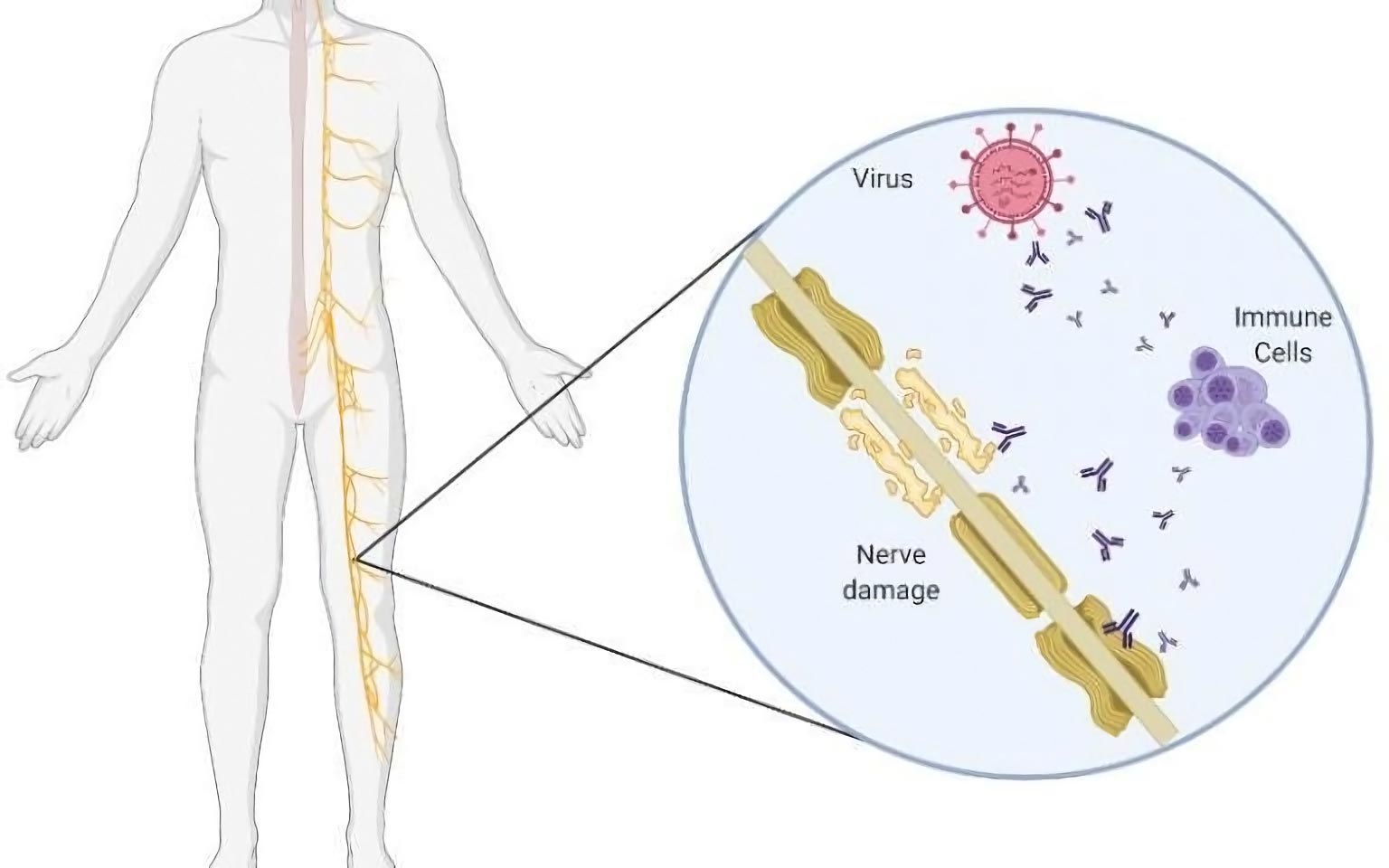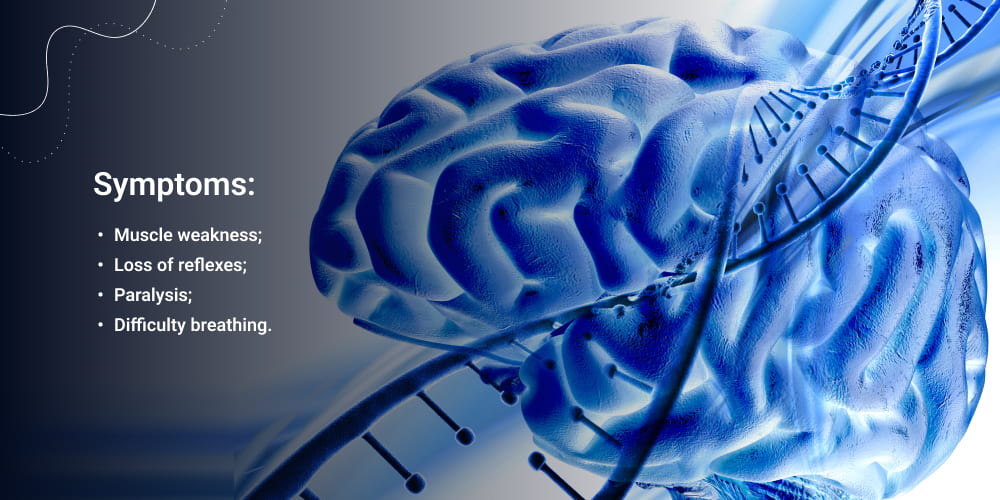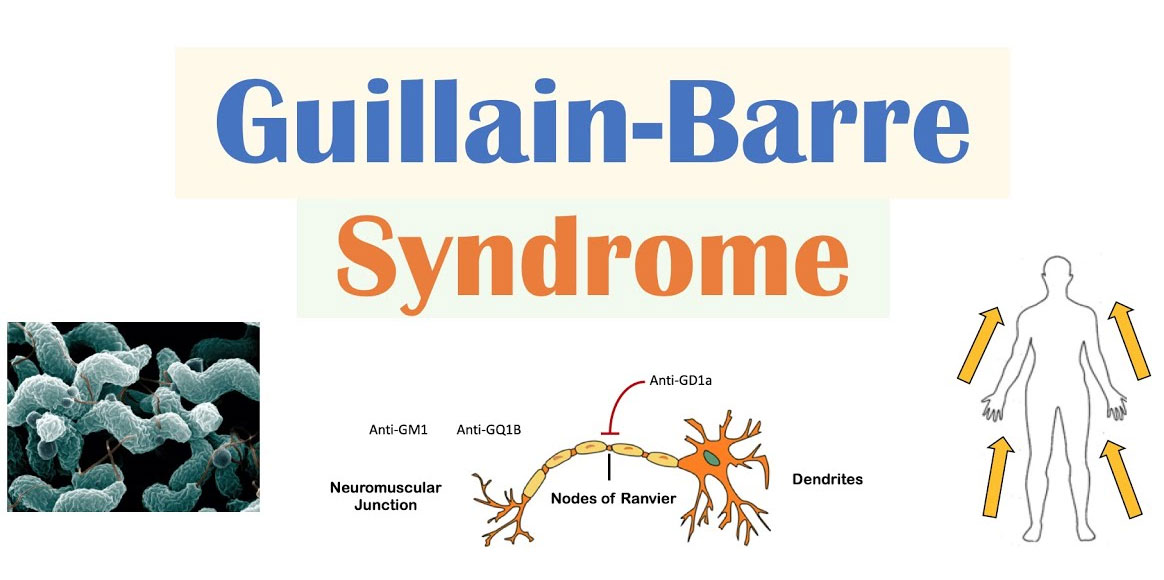Guillain-Barre syndrome (GBS) is a rare but serious neurological disorder where the body's immune system mistakenly attacks the peripheral nerves. This disorder can progress rapidly, leading to significant weakness and even paralysis. Despite its severity, with prompt treatment and careful management, many people can fully recover. Let's delve deeper to understand more about this life-altering condition.
- Blogs
- General Knowledge
- Guillain Barre Syndrome An In Depth Overview 64ae99c814e5bf0001280626
Guillain-Barre Syndrome: An In-Depth Overview
General Knowledge • 12 Jul, 2023 • 1,893 Views • ⭐ 5.0
Written by Shivani Chourasia

What is Guillain-Barre Syndrome?

GBS is an autoimmune condition, meaning it occurs when the immune system erroneously attacks the body's cells. In the case of GBS, the immune system targets the myelin sheath, a protective layer that envelops the peripheral nerves and aids in transmitting signals from the brain to various body parts. When this layer gets damaged, signal transmission slows down or stops, resulting in muscle weakness and loss of sensation.
Symptoms and Progression

Guillain-Barre syndrome often begins with weakness and tingling sensations in the lower limbs. These initial symptoms may seem insignificant, but they can quickly escalate over hours or days, often spreading to the upper body and arms. In severe cases, individuals may experience difficulty moving, walking, or even breathing, which calls for immediate medical attention. The progression of GBS can be quite unpredictable. Symptoms typically reach their most severe within two to four weeks and plateau before recovery begins. Although the disease may leave some residual weakness, approximately 70% of patients experience a full recovery.
GENERAL KNOWLEDGE QUIZ • 10 QUESTIONS • 2 MINS
We've got a General Knowledge quiz for you!
TAP TO PLAY

Causes and Risk Factors

The exact cause of Guillain-Barre syndrome remains a medical enigma. However, GBS often follows an infectious illness, such as respiratory or gastrointestinal infection, suggesting a connection. The syndrome has also been reported after surgeries and vaccinations, although these instances are infrequent.
Anyone, regardless of age or gender, can develop GBS, but it is more prevalent among adults and older people. It's also important to note that GBS is not contagious and does not usually occur more than once.
Diagnosis and Treatment

Diagnosing Guillain-Barre syndrome can be challenging due to its varying symptoms, often similar to other neurological disorders. It primarily involves clinical assessment, nerve conduction studies, and a lumbar puncture (spinal tap).
Once diagnosed, patients receive treatment in a hospital setting to monitor and manage severe symptoms. Although there's no cure for GBS, treatments like plasma exchange (plasmapheresis) and intravenous immunoglobulin therapy can significantly alleviate symptoms and accelerate recovery. Rehabilitation therapies, such as physical, occupational, and speech therapy, play a pivotal role in helping patients regain strength and function as nerve damage begins to heal.
Living with Guillain-Barre Syndrome

GBS is an unpredictable condition that can be profoundly life-altering. Despite its severity, most patients make a good recovery, although it can take several months to a few years. Residual fatigue and weakness may linger, and some individuals might experience long-term complications such as pain, numbness, or balance issues. Support from a strong network of healthcare professionals, family, and friends is invaluable in this journey towards recovery. It's also essential to access psychological support to deal with emotional challenges during the recovery phase.
Conclusion
Guillain-Barre syndrome is a severe neurological disorder, but one that comes with a hopeful prognosis given its high recovery rate. Early detection and prompt treatment can drastically improve outcomes, highlighting the importance of being attuned to our bodies and seeking medical attention when needed. Living with or recovering from GBS is undoubtedly a daunting experience, but with ample support and resilience, patients can successfully navigate this challenging journey.
Rate this article
Other articles you may like
Celebrating Progress: International Women's Day 2024
General Knowledge • 5 Mar, 2024 • 36,945 Views

Valentine's Day Around the World: Love Celebrations Globally
General Knowledge • 7 Feb, 2024 • 42,088 Views

Host a ‘Palentine’s Day’: Celebrating Friendship on Valentine’s Day
General Knowledge • 7 Feb, 2024 • 41,651 Views

Valentine's Week 2024 Guide: Dates & Celebrations
General Knowledge • 7 Feb, 2024 • 39,853 Views

Simple Life Hacks for Daily Efficiency
General Knowledge • 12 Jan, 2024 • 59,528 Views





